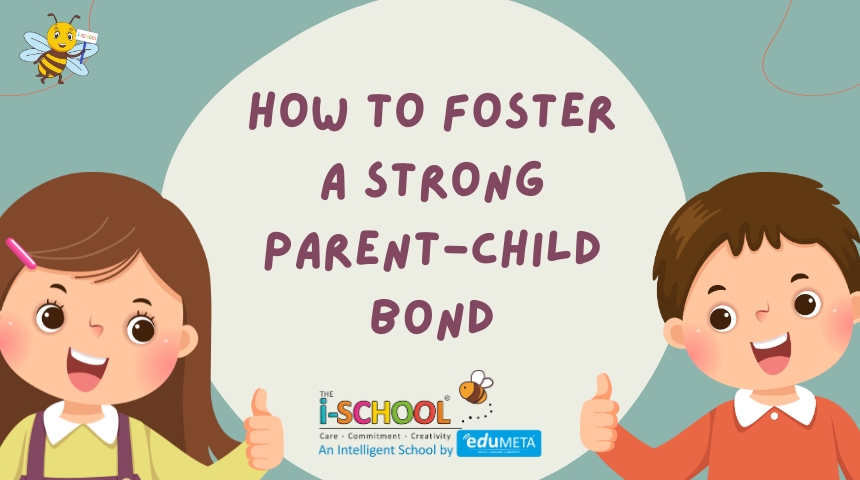How to Foster a Strong Parent-Child Bond

Creating a strong parent-child bond is crucial for the emotional and psychological development of children. This connection lays the foundation for their confidence, resilience, and overall well-being. But how can parents nurture this bond effectively? Here are some practical tips on how to foster a strong parent-child bond that will last a lifetime.
Spend Quality Time Together
Prioritize One-on-One Time
One of the most effective ways to foster a strong parent-child bond is by spending quality time together. This doesn’t mean just being in the same room; it means engaging in activities that both you and your child enjoy. Whether it’s playing a game, reading a book, or going for a walk, these moments create lasting memories and strengthen your relationship.
Daily Rituals and Routines
Incorporate daily rituals that give you uninterrupted time with your child. This could be a bedtime story, a morning chat over breakfast, or a daily walk. These routines provide consistent opportunities for connection and communication.
Communicate Openly and Honestly
Active Listening
Listening is a fundamental part of effective communication. When your child talks to you, give them your full attention. Show that you are interested in what they have to say by maintaining eye contact, nodding, and responding appropriately. Active listening helps your child feel valued and understood.
Open Dialogue
Encourage open dialogue about feelings, experiences, and challenges. Let your child know that it’s okay to express their emotions and that you are there to support them. Being open and honest with your child builds trust and reinforces your bond.
Show Unconditional Love and Support
Express Affection
Regularly express your love and affection. Simple gestures like hugs, kisses, and saying “I love you” can significantly strengthen your parent-child bond. These expressions of love reassure your child that they are cherished and valued.
Support and Encouragement
Support your child’s interests and hobbies. Celebrate their achievements, no matter how small, and provide encouragement when they face challenges. Your unwavering support helps build their confidence and resilience.
Be Involved in Their Lives
Participate in Activities
Be actively involved in your child’s life by participating in their activities and interests. Attend their school events, sports games, and hobbies. Your presence shows that you care about their passions and are invested in their happiness.
Know Their Friends
Get to know your child’s friends and social circle. This not only helps you understand their world better but also shows that you are interested in all aspects of their life. It can also help you guide them in making healthy and positive friendships.
Set Boundaries with Love
Consistent Discipline
Setting boundaries is essential for your child’s development. Consistent and fair discipline helps your child understand expectations and consequences. However, it’s important to enforce rules with love and not harshness. Explain the reasons behind the rules to help them understand and accept them.
Balanced Autonomy
While setting boundaries, also give your child the autonomy to make choices appropriate for their age. This balance helps them develop independence and decision-making skills while knowing that you are there to guide and support them.
Engage in Meaningful Conversations
Ask Open-Ended Questions
Encourage deeper conversations by asking open-ended questions that require more than a yes or no answer. Questions like “What was the best part of your day?” or “How did that make you feel?” stimulate thoughtful responses and discussions.
Share Your Stories
Share your own experiences and stories with your child. This not only makes conversations more engaging but also helps them learn from your experiences and see you as a relatable and trustworthy figure.
Create a Positive Home Environment
Encourage Positivity
Maintain a positive and supportive home environment. Celebrate each other’s successes and provide comfort during tough times. A positive atmosphere fosters a sense of security and belonging.
Family Activities
Engage in family activities that everyone enjoys. Whether it’s a game night, a family picnic, or a movie marathon, these activities strengthen family bonds and create happy memories.
Conclusion
Fostering a strong parent-child bond is a continuous process that requires time, effort, and dedication. By spending quality time together, communicating openly, showing unconditional love, being involved in your child’s life, setting boundaries with love, engaging in meaningful conversations, and creating a positive home environment, you can build a lasting and strong connection with your child. Remember, the efforts you put into nurturing this bond will have a profound and lasting impact on your child’s development and well-being.
Creating a strong parent-child bond is crucial for the emotional and psychological development of children. This connection lays the foundation for their confidence, resilience, and overall well-being. But how can parents nurture this bond effectively? Here are some practical tips on how to foster a strong parent-child bond that will last a lifetime.
